The editor-in-chief of the Armenian-Turkish weekly Agos
Preaching the power of forgiveness many times over
By Teresa Watanabe
Los Angeles Times
July 7, 2007
One is an Armenian American priest who resides in Pasadena, the other a Rwandan minister who lives half a world away in Kigali. Across culture and distance, however, Father Vazken Movsesian and Benjamin Kayumba share a powerful if tragic bond: their peoples' traumatic legacy of genocide.
Movsesian lost dozens of relatives, including a grandfather, during the early 20th century massacre of about 1.2 million Armenians under the Ottoman Empire, which became the modern republic of Turkey.
For Kayumba, the scars are more recent. He lost 152 relatives, including both parents, during the 1994 slaughter of more than 800,000 minority Tutsis and moderate Hutus by Hutu extremist militias.
The men also share a conviction: that only forgiveness can ultimately heal themselves and their communities.
Read the Full StoryChanitz Facebook
Now you can become a part of the "Emmanuel Chanitz" group on facebook by clicking on the following link:
http://www.facebook.com/group.php?gid=2333139045
Note that you must have a facebook account to log on and become a member of the group.
You can register ti facebook on www.facebook.com


Celebrating with the graduates and Farewell to Sirag
- Mr. S. Ohanian, graduated and received his MBA
- Ms. R. Kalfayan, graduated from Baccalaureate II class
- Ms. A. Kazezian, graduated from Baccalaureate II class
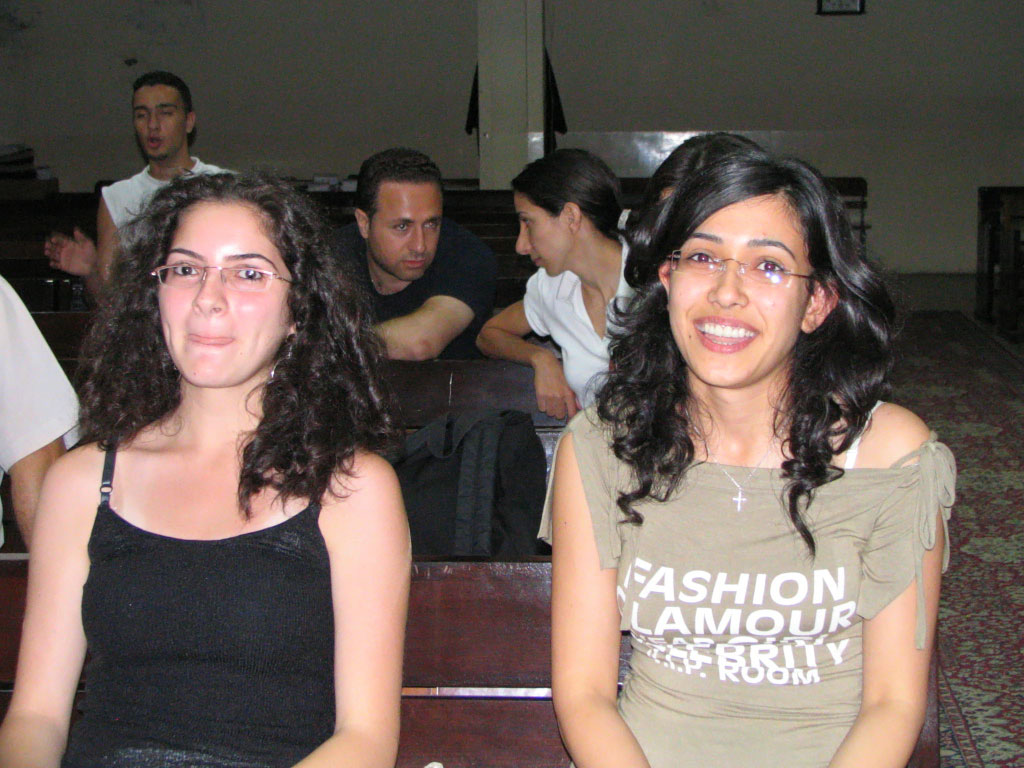
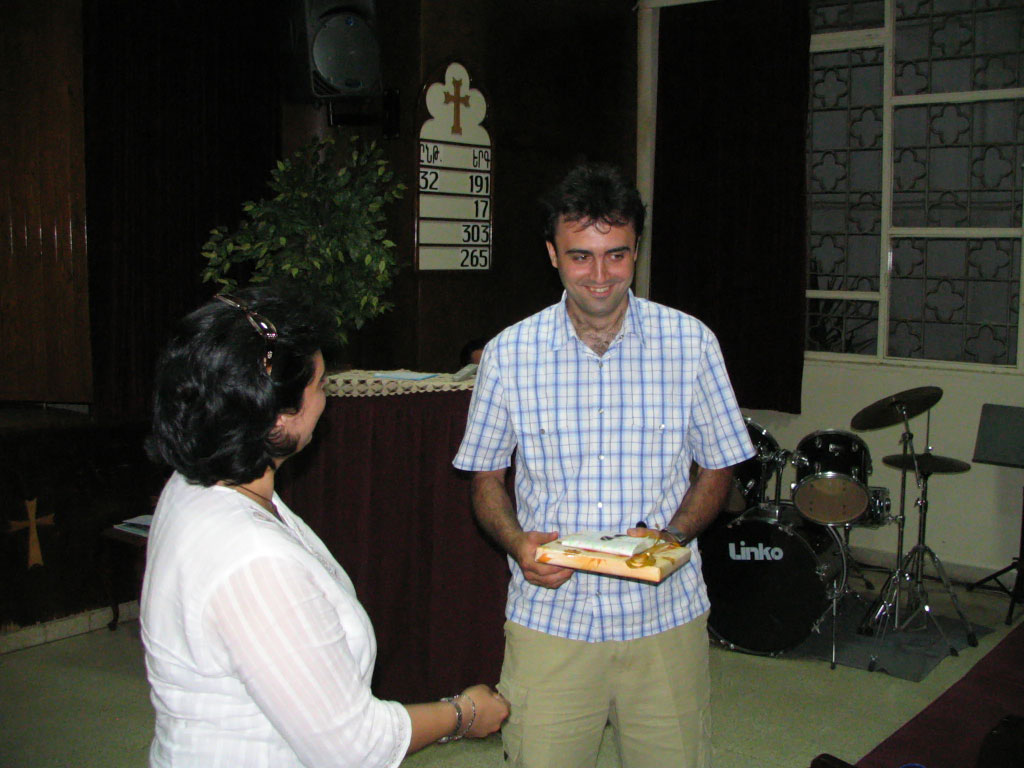
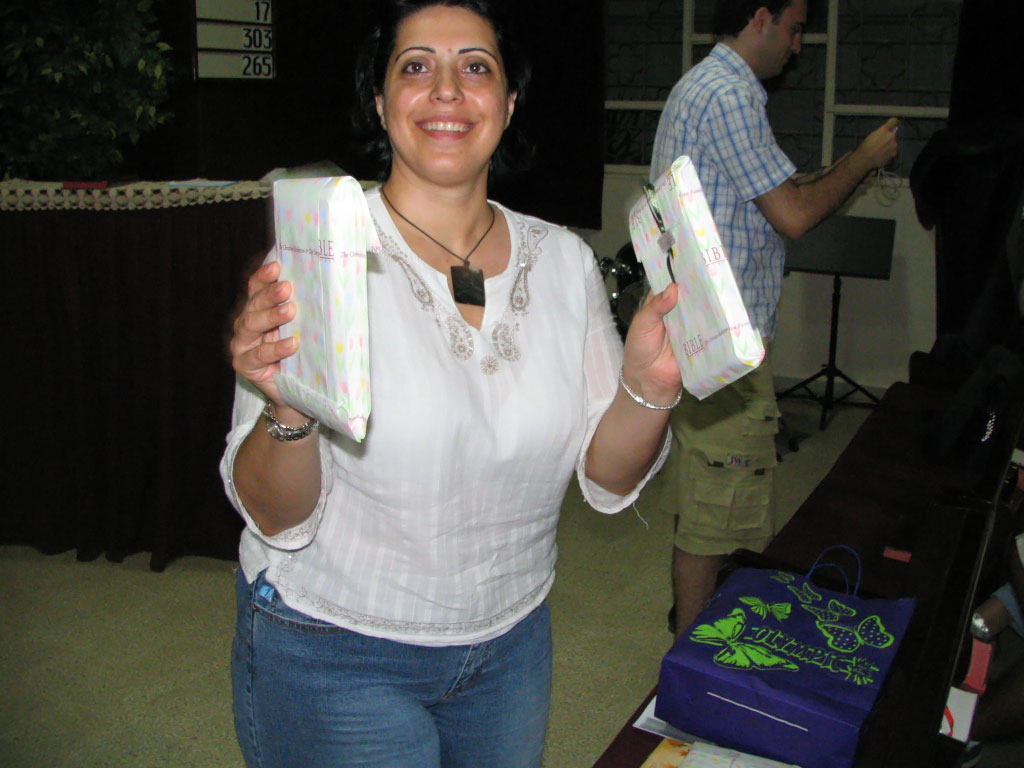
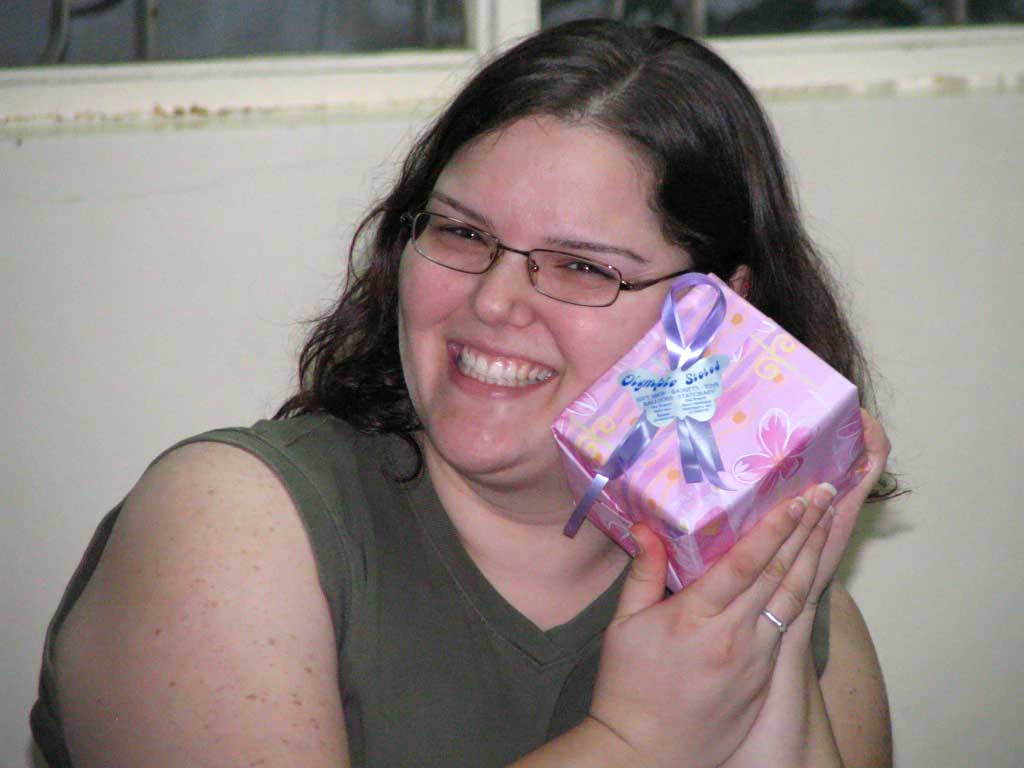
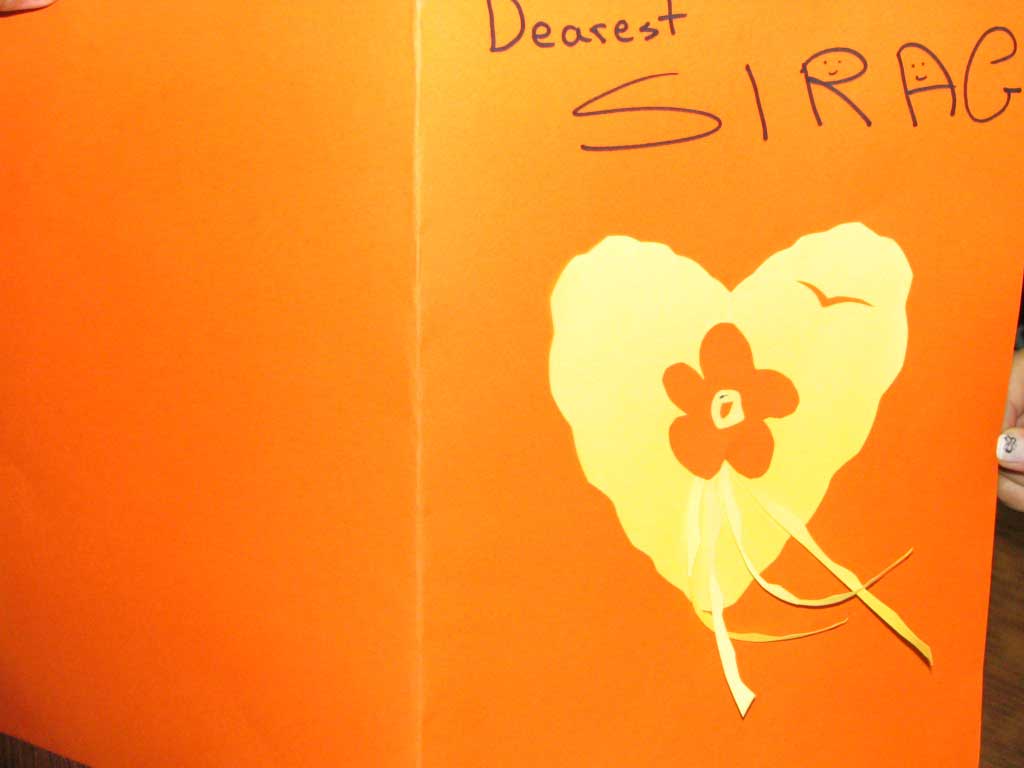
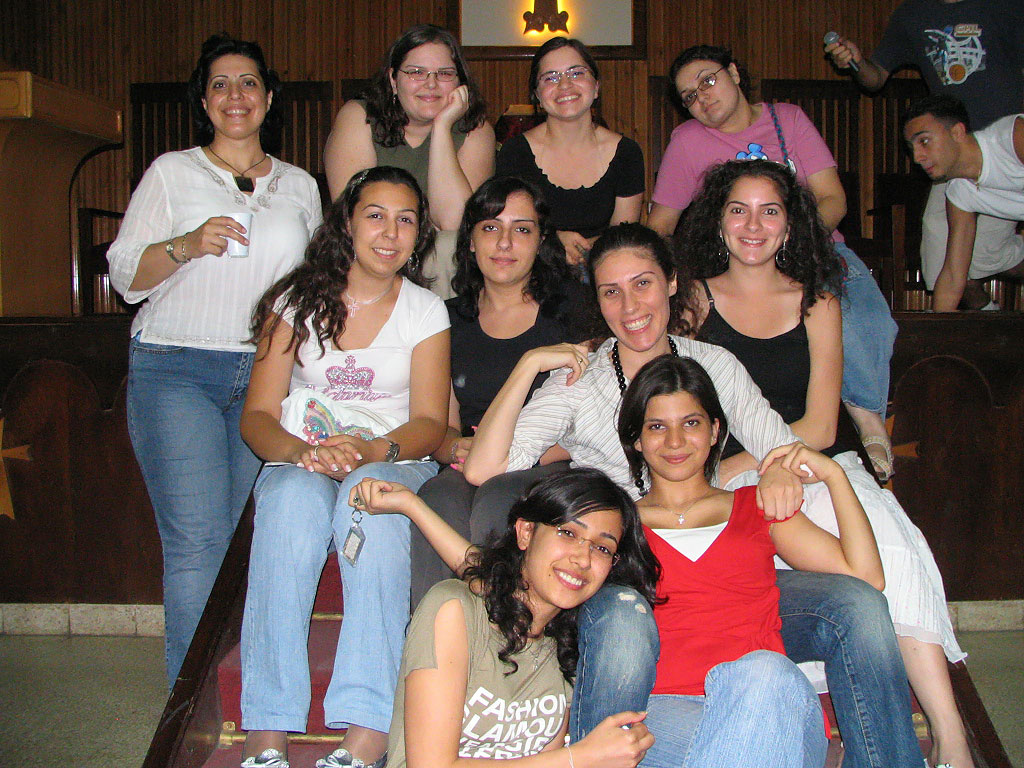
Ms. S. Geocherian gave to each graduating chanitzagan their gifts.
We also said goodbye to Ms. S. Karagoezian, who will marry with Rev. D. Basmajian and together will stay in Damascus, where Rev. Basmajian currently serves.
Everyone wrote in the Farewell card, exchanged gifts and kisses, took group pictures, and celebrated.
It was one hyper night!
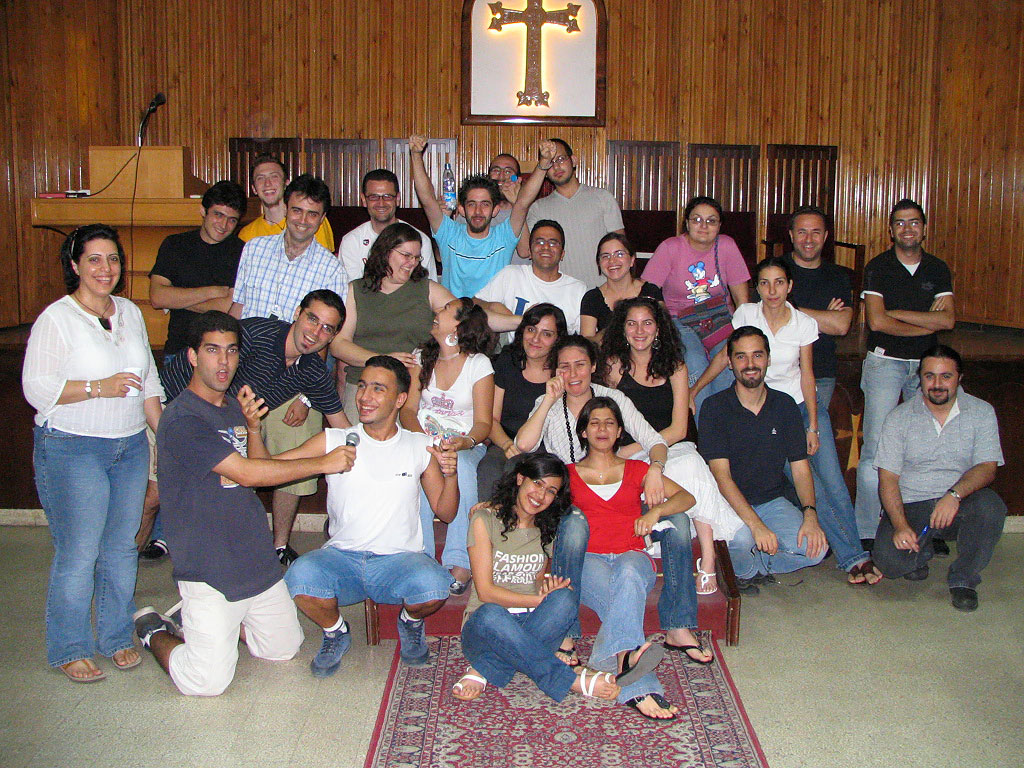

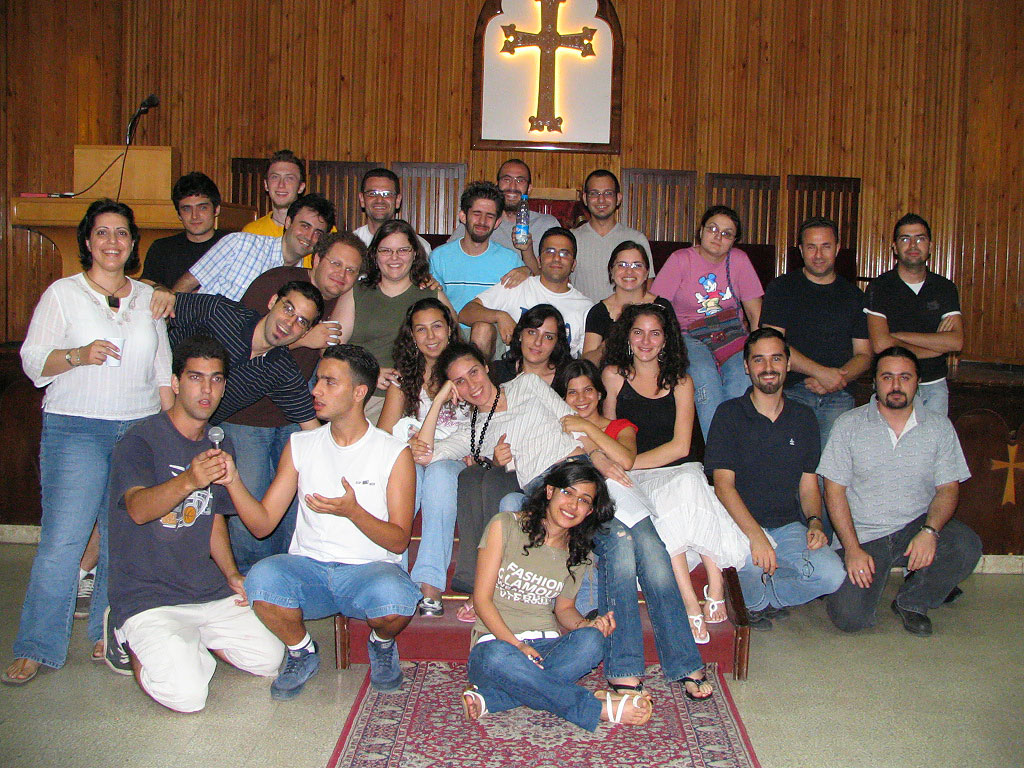
"...that other children were different", SPEECH OF HOSROF DINK
Hrant Dink, who was brutally murdered on January 19, is my brother. I am here to seek justice and to see that the perpetrators of this crime against humanity are found out.
My older brother Hrant, I and my younger brother Yervant were born in Malatya and shared the most sacred and fundamental right of the humankind the right to life as well as our hopes, our pains and our poverty.
Our father Sarkis and our mother Gulvart are divorced when we were children. The conditions forced us to grow in an orphanage. We had to begin learning the harsh conditions of living humanly on these land when we were children, in the orphanage.
We thought we were born as human beings. In time, against our will we were given many identities, we were labeled. We no longer belonged to the humankind, nor to the earth. We became part of a particular region, a particular people, a particular family and many more
different identities. Even during our childhood we were aware that other children were different. We saw and lived discrimination. We witnessed the crowds with intolerance to diversity.
We shared our lives with our wifes: Hrant with his Rakel, me with my Zabel and Yervant with his Haygan.
We grew bigger with our children; we transformed our pains to happiness, our poverty to wealth and our hopes to eternity. We fought together to ensure that our children, together with the children of the world, would not live through the pains and difficulties that we had to experience.
We did not forget to laugh with the people around us and share the joy with the world. On January 19, a bullet hit our happiness and our family, which we built with our efforts, tears, joy and hopes. On 19 January once again we understood that we were neither human nor an earthling.
My brother knew that our ancestors were born in these lands and harvested this land, turned grape into pectin, grape juice to wine, wheat to bread, earth to jug, copper to ewer, iron to pillow and that they dearly loved this land, they caressed it with their hands and smelled with their noses. I know he thought that all the people who lived and currently live share the same pain, and that all their happiness, sadness and hopes are linked to each other.
After the murder of my brother people expected that we would be afraid and leave this country. And for some thinking was not enough they did everything they could to make us escape. Some of the threats we received are in the case files. But they could not understand, they did not perceive something. Like all the people that were born on these soils, we were born and grew up here; we blended our sorrow and hopes with the people of this land. In short we were born here
and we will die here. Hrant, with all the opportunity he had, did not leave this country; he did not abandon his friends. This is what suits us. This trial, which will begin today, will be a milestone
for Turkey if the truth comes out.
In fact, this trial is one that the rule of law vs. the people who implement justice for their own interests and incomes. In other worlds it will be between the people who believe in the rule of law and the people who say "we are the law, we are the state".
We do not have anything to win or lose in this trial.
Neither the beloved we lost will come back, nor our lives will get better. In essence, you are the addressees of this case.
On one hand there is the judiciary; on the other an organization that see themselves superior to the state, have no respect to law and prove this through their acts and executions. In their dark world, they can decide who shall live or die; they are the judge and the executioner. Under these circumstances we, you and even little children, none of us is safe.
The main question waiting to be answered is: What will the justice do against this power that can take away the right to life of an Armenian citizen; that can kill a judge in his own seat?
There has been similar structures in every country that get its support from within state institutions.
But these countries were able to bring their country to lightness from the darkness by destroying these structures through their belief to justice and with brave judges. This trial is a chance to do the same.
We believe that there exist such brave judges in our country, too.
The people will give all the support they will need.
And a last word?
Every citizen of Turkey's right to life is sacred and under state protection.
And it will be Turkey that will win or lose at the end of this trial.
Hosrof Dink
"...I feel no hatred to any of them", ADDRESS OF RAKEL DINK TO THE COURT
My story begins with the Armenian Varto tribe which is one of the 1915 left overs. I was born in 1959 into the Armenian Varto tribe which was in Mardin borders; in Sirnak district now. Today the town is called Yolagzi. The name Varto comes from my grand grandfather's name, Vartan. The remaining of the tribe migrated to Ýstanbul in 1978. Until migration, their life in the village, and then in the city was spent by struggling at the courts against the fraud deeds that the landlords of the neighboring villages manufactured. These neighbor villages were built on our lands. They were beaten, wounded and miraculously survived murder attempts. My father lived an honorable life without denying his roots and religion. He passed away in Brussels three
years ago, with his mind and soul worried about his land, of which the trials still continue. His children promised him that they would continue the struggle. He never acted cowardly, was never lazy, never laid an evil eye on other's work and never imposed us with animosity.
I met with my beloved husband, whom I used to call Cutag, Hrant Dink in a boarding school; we grew up together; we got married. They stripped up our boarding school from us. With the help of Jesus Christ we overcame all the obstacles, hardships. We were worried at the problems of our country together. And now, I cry with a deep sadness.
Until today we were treated humiliated, insulted for being Armenians; we heard people use Armenian as a curse. We heard it and we still hear it from the newspapers, TVs, birth registration offices; from public servants to the highest authorities. Sometimes we were treated as if we were not citizens of this country, but migrants from somewhere else. We still witness all these and this structuring and this understanding; this darkness continues to create murderer from babies.
Verse 21:3 says "God wishes righteousness and justice rather than sacrifices. Today, we see the babies who became murderers here; where is the darkness that created them?
The darkness I point to is not anyone unknown. You can find pieces of this darkness in Governorship, in Gendarmarie, in Armed Forces, in National Intelligence Agency, in Police, in Government, in Opposition Part, in parties that do not have a seat in the parliament, and even
in the media and the non-governmental organizations. Their names, their positions are known.
They continuously create murderers from babies and they do it to serve Turkey. We have seen them in front of AGOS right after the Sabiha Gokcen article and in front of the court houses where my husband was being tried. But for some reason, justice and judiciary cannot reach
to them, do not want to reach to them. Because, they know that if they dig further they will see that this darkness exists in them also.
Therefore, if you are not from this darkness and do not approve it, do not agree with them be courageous enough to go deeper and pull down all the barriers that was put on this case. Be the instrument of the God's justice; so that Turkey can be happy and this becomes the starting point of bright days for Turkey.
Your Honor, my husband was tried for he wrote, for he thought and spoke. As an innocent man, due to this understanding of the state he was found guilty. I believe that the expressions of the state bears separatism, insult, degradation; it encourages and multiplies the baby murderers. In short, the source of this spring is the perception and discourse. I am compliant against this discourse and to the ones who speak it out.
I, as a member of the people who live on these soil since Noah, want to feel and see my children and myself as Armenian Turkish citizens, as equal citizens.
Our proverb says "One who denies his origin is a sinner". What would you expect from the one who denies or hides his origin? How can you establish a strong building, a good character over a faulty base? I ask you, can you trust him? Does it mean that we are enemies for not denying our origin?
My beloved husband worked hard, never lied, never acted unjustly, never said a word against his country either here or abroad. He was a defender of truth and he lived as a true son and a true citizen. In return, he received the traitors bullet.
Whatever the justice you will see fit, it will not bring my husband back. None of the rulings will be as equal as my loss of my husband. If the justice is the foundation of the land, then I am in search of this justice. I want Turkey to build upon this base. I want to see it not in words, I want to see it in daily life, in discourse. Therefore, I demand that all the responsible ones and the authorities declare: "we could not, we did not want to protect your husband, our citizen. We knowingly committed a crime, we apologize.
I demand from honorable court which is the representative of the state that all the criminals receive the punishment they deserve. I feel no hatred to any of them; on the contrary I find all of them miserable and I feel pity for them. I pray mercy for them with the love and justice of Jesus Christ, one who knows all, sees all. I wish that with the help of the Holy Spirit, they can feel that they need this mercy. And I request that you act and decide in line with your responsibility.
With my due respect,
Rakel Dink.
2 Turkish converts face new accusations
Hakan Tastan and Turan Topal, facing charges for insulting Turkishness under the nation's notorious Article 301, were summoned to Istanbul's Beyoglu police headquarters on Sunday morning, July 1, just before church services began at the Taksim Protestant Church where Tastan is a member.
"Three plainclothes policemen were waiting for me at the church," Tastan told Compass Direct News, "saying I was wanted at the police station." With their lawyer out of town, Tastan telephoned Topal, and the two agreed to go to the police station.
"I thought probably the police were acting on last week's Interior Ministry decree," Tastan told Compass, referring to a June 28 directive sent to all the nation's governors ordering extra security for Turkey's religious minorities in the wake of rising violence against non-Muslims. "But it turned out to be something entirely different."
The two Christians were both presented with a separate "penalty" sheet from the security police division linked to the Beyoglu district, ordering each one to pay 600 Turkish lira (US$461) for breaking a civil law.
According to the one-page court papers, the two men were guilty of violating section 29 of civil administrative code 2860, which forbids the collection of money without official permission from local district authorities.
Evidence of the alleged misdemeanor, the papers noted, was in the hands of authorities in Silivri, 45 miles west of Istanbul, site of the two Christians' trial for allegedly insulting Turkish identity.
The men were shown no documents or alleged evidence of the accusations against them.
"What is this? Just more harassment," Topal told Compass. Both he and Tastan have been subjected to surveillance and even secret filming by Turkish authorities over the past year.
"This is ridiculous," the men's attorney, Haydar Polat, told Compass July 3. "It has nothing whatever to do with the original case against my clients. Now we will have to open a case against this administrative order within 15 days, and it will take at least a year to get these unsubstantiated charges dropped."
At a previous hearing in January, leading prosecution attorney Kemal Kerincsiz had accused Tastan's church of breaking Turkish laws by collecting offerings without official permission from local civil authorities.
Tastan and Topal, former Muslims who converted to Christianity more than a decade ago, were arrested for two days last October and then put on trial before the Silivri Criminal Court in late November.
In addition to charges under Article 301's restrictions on freedom of speech, the two Christians are accused of reviling Islam (Article 216) and secretly compiling files on private citizens for a local Bible course (Article 135).
More than 300 of Turkey's writers, journalists, historians and other intellectuals have been indicted under Article 301 for defaming "Turkishness, " a concept which remains undefined.
A majority of the country's influential nationalist factions supporting the law also oppose Turkey's bid to enter the European Union (EU), warning that Europe wants to force Western values and reforms onto Turkey which are contrary to its Muslim heritage. The EU has demanded that Turkey either scrap or amend the restrictive law to meet European standards of freedom of speech.
Before the Christians' third trial hearing on April 18, prosecutor Kerincsiz spoke at length to journalists gathered outside the Silivri courthouse about the case.
Deploring changes in Turkish law that he said "removed missionary work from being a crime" in Turkey, the lawyer called the two Christians part of a "dangerous group."
"They have a large amount of money from an unknown source," Kerincsiz was quoted as saying in an April 18 report from Ihlas News Agency. Claiming they had "poisoned hundreds of youth" over the last two years, the lawyer demanded that the government take action against them.
Kerincsiz claimed the defendants lived luxurious lives, using everything from expensive cars to sexual temptations to deceive young people in grade school and high school into converting to Christianity. In court, however, Kerincsiz has failed to produce any solid evidence of these allegations.
During the hour-long hearing April 18, a representative testified from the regional gendarme headquarters that ordered the initial investigation, along with one of the teenage boys accusing the converts.
A 17-year-old identified as Oguz Y. took the witness stand for the prosecution, although he admitted under questioning that the defendants had never forced him to change his religion or join in their activities.
At the close of the hearing, the presiding judge warned local police that he would open a contempt case against them if they failed to produce all three of the plaintiffs at the next hearing, set for July 18. The trial will take place in the tense run-up week before Turkey's parliamentary elections on July 22.
Despite a large media contingent on the scene, national coverage of the Silivri trial was muted the following day, after news broke that same afternoon of the brutal murder in Malatya of three Christians. The two converts from Islam and a German Christian had been tortured for several hours at a Christian publishing house office before the five young attackers slit their throats.
But two days later, the nationalist Yeni Cag newspaper reported on the Silivri trial with a front-page banner headline, "Missionary Fear," followed by an inside page headlined, "The trial that scares the [Justice] Ministry."
According to a Justice Ministry communiqué partially reprinted in Yeni Cag's April 20 edition, the Turkish government warned the Silivri court that news about the case in the international press could cause the European Union to "call us to account."
The Silivri court reportedly was asked to send copies of the indictment and the complete case file to the Justice Ministry in Ankara.
Dink murder trial begins with tension
 ISTANBUL - More than one thousand people gathered outside an Istanbul courthouse calling for justice as the first hearing of the trial of 18 persons accused of involvement in the murder of prominent Turkish-Armenia journalist Hrant Dink murder opened.
ISTANBUL - More than one thousand people gathered outside an Istanbul courthouse calling for justice as the first hearing of the trial of 18 persons accused of involvement in the murder of prominent Turkish-Armenia journalist Hrant Dink murder opened.There was tension as the lawyer of some of the defendants, Fuat Turgut, entered the court, facing demonstrators who were chanting “We are all Hrants.”
Turgut said that the protestors were all Armenians while the crowd responded saying that he was a provocateur.
There was also tension in court room as Dink’s widow and daughters walked in and were applauded, Turgut responded by claiming that they were holders of Armenian passports. Umit Abanoz, a lawyer for the Dink family, walked over to Turgut and told him to take of his robe as he was a provocateur.
Dink was gunned down on January 19 this year outside the office of the Argos newspaper, which he founded and was chief editor.
The court hearing was closed to public as alleged murderer, identified as O.S., is underage.
The prosecution has asked for up to 24 years jail term for O.S. and life sentences for the alleged master minds of the murder.
Around 500 lawyers representing the Dink family attended the first day of the trial, saying they wanted to ensure justice was done.



